IRGC Chief Says Thousands Of Rockets Arrayed Against Israel
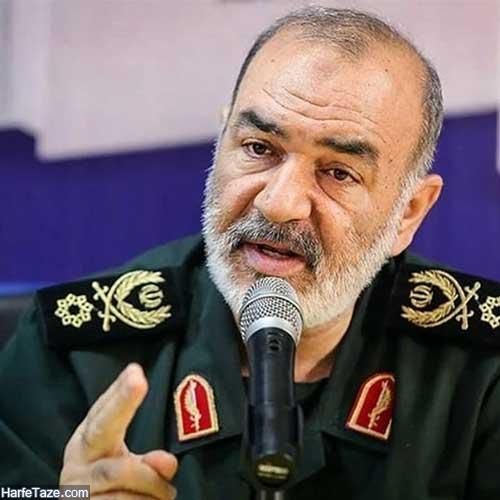
The commander of the Revolutionary Guard (IRGC) says the war between Israel and Palestinians is not limited to Gaza and has expanded to the West Bank.

The commander of the Revolutionary Guard (IRGC) says the war between Israel and Palestinians is not limited to Gaza and has expanded to the West Bank.
In an interview with the official website of Iran’s Supreme Leader published on Friday, Major General Hossein Salami said that “the flames of resistance that were ignited in the occupied territories have never been extinguished and you constantly observe that these struggles continue in all Palestinian territories.”
Praising the attacks by the Palestinians against the Israelis, he claimed many Israelis have been killed in the operations by “resistance groups inside the occupied territories,” in the past several months. He added that the number of Israelis killed is significantly higher than the previous year.
Salami said that the Palestinians have evolved in their military capabilities and can now target any part of Israel, claiming that there is no safe place for Israelis that Palestinians' rockets cannot reach. He also said that “if you add Lebanon's Hezbollah to this equation, you realize that hundreds of thousands of rockets arrayed against the Zionist regime can be fired from the north and west in the Gaza Strip and in the north, from Hezbollah's side.”
“Missiles are great for deterrence and conducting static wars, but the rocket is not the liberator of the land – the infantry must set foot on the ground and liberate the land step by step,” he added.
Earlier in the month, Ali Khamenei praised the Islamic Jihad for “uniting Anti-Israeli Resistance” and “displaying the integrity of the Palestinian nation’s jihad.”

A notorious commander of Iran's Revolutionary Guard (IRGC), previously expelled from Syria, was in charge of operations to kill Israelis, Iran International has learned.
General Javad Ghaffari, the IRGC Qods Force commander who had reportedly been expelled from Syria last November for ‘major breach of Syrian sovereignty’, led the IRGC Intelligence Organization's plots to kill Israelis in Turkey in the past nine months, a former senior IRGC official told Iran International.
After returning from Syria, Ghaffari was appointed as the deputy head of IRGC Intelligence Organization for Special Operations, where he orchestrated a series of failed attacks against Israeli citizens, the Iranian source said.
In the latest case in June, Turkey's National Intelligence Organization (MIT) thwarted a planned attack against Israeli diplomats and tourists in Istanbul. MIT said that it detained eight suspects allegedly working for an Iranian intelligence cell.
Ghaffari was the third commander of the Iranian forces in Syria since 2011 when Iran began its large-scale intervention in Syria's civil war. He started his career in Syria as one of the commanders at the Iranian forces' headquarters in Damascus and was later appointed as the commander of the forces in Aleppo - where he became known as the 'Butcher of Aleppo'.
There, he led Iranian forces as well as their Lebanese Hezbollah proxies and Afghan mercenaries, the Fatemiyoun, until he was allegedly ousted by Assad.
Ghaffari was expelled from Syria as he was "accused of ‘major breach of Syrian sovereignty’ after attacking US forces, and deploying Iranian weapons to unapproved places," the Times of Israel quoted Saudi sources as saying.
According to the Times, it was reportedly Syria that shunned Ghaffari for "nearly starting a war with Israel," and "almost causing an unwanted regional war."
Back-to-back failures
Ghaffari's expulsion from Syria not only did not result in his retirement, but also won him a senior position at the IRGC Intelligence Organization (SAS).
His failures at SAS outraged many IRGC officials, and finally prompted Iran's Supreme Leader Ali Khamenei to sack the organization's controversial, but powerful chief Hossein Ta'eb, who had run SAS for 13 years.
However, Ghaffari was not the first or only official responsible for SAS operations overseas. His predecessor Reza Seraj had also been sacked for a failed plot to kill Israelis in Cyprus.
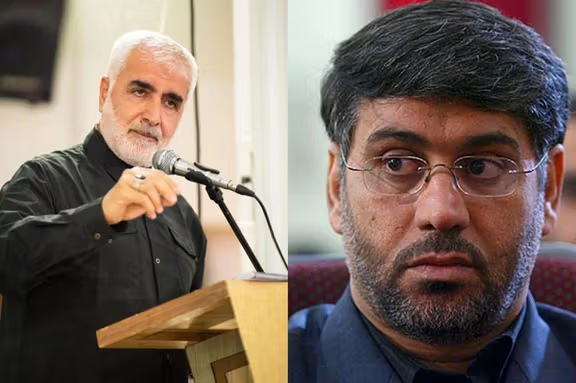
Another key figure in the unsuccessful attempts to assassinate Israelis in Turkey was Rouhollah Bazghandi, the deputy head of the SAS counterintelligence (Unit 1500), the former senior IRGC official told Iran International.
Bazghandi was in charge of the June operation to assassinate former Israeli Consul General in Istanbul, Yosef Levi Sfari, as well as three Israeli women tourists.
By using amateur agents to carry out the attacks against Israeli targets in Istanbul, Bazghandi dealt a heavy blow to IRGC Intelligence Organization, the source told Iran International.
He was also in charge of thwarting plots to assassinate Iran's security officials inside Iran; however, Hossein Ta'eb used him for his extraterritorial operations, and apparently his absence, among other reasons, turned Iran into a safe haven for Israeli Mossad agents who launched several sabotage operations and assassinations, killing Colonel Hassan Sayyad Khodaei, other key figures and scientists in Iran's drone, missile and nuclear program.
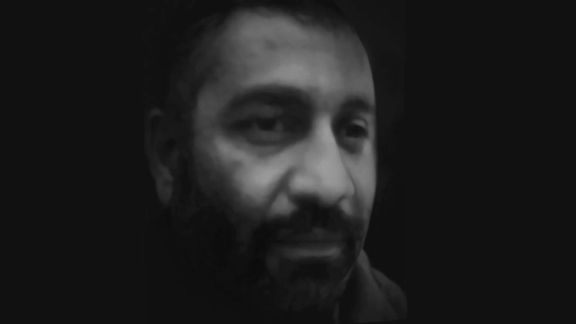
On May 22, two assailants on a motorbike fired several bullets at Col. Sayyad-Khodaei outside his home in broad daylight, prompting Iranian officials to accuse Israel of organizing the attack, and vowed revenge.
This incident was followed by more mysterious deaths of IRGC officers and weapons experts, which were again blamed on Israel that has not denied responsibility as it is engaged in a secret war with the Islamic Republic.
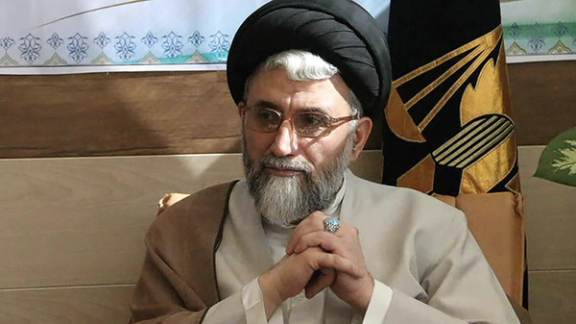
Iran’s Intelligence Minister Esmail Khatib has warned critics of government against writing statements and open letters to criticize the current situation in the country.
Khatib made the remarks on Thursday as the Islamic Republic’s security apparatus is increasing pressure on the signatories of a statement against Iran’s crackdown on popular protests, demanding they rescind their signatures.
Informed sources told Iran International Wednesday, August 17, that the Intelligence Ministry as well as the security division of the country’s Ministry of Culture and Islamic Guidance have threatened more than 100 film industry figures to withdraw their signatures from a May statement titled “Lay down the gun”.
Khatib blamed the United Sates for internal opposition, saying the US was forced to leave the region following humiliation and defeat and their conspiracies were thwarted, and now “the enemy’s hopes in some domestic seditionists and statement writers are doomed to failure.”
The statement by filmmakers had called on military and security forces who “have become tools for cracking down on the people,” not to suppress protesters during popular demonstrations in May.
According to reports, under the threat of security forces, about 15 people have so far withdrawn their signatures from the statement.
Iran International’s sources also said that 10 documentary makers have been informed that they are banned from leaving the country and that a list of artists who are banned from working will be announced next week.
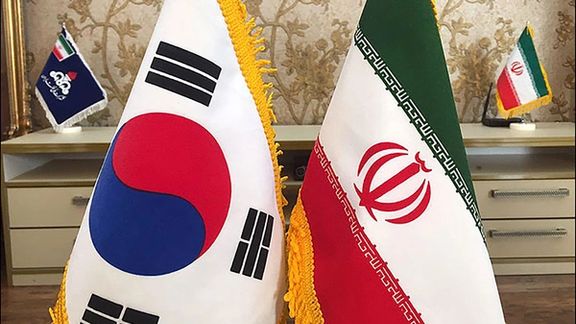
South Korea is discussing with top officials from the United States and the European Union the possible restoration of the 2015 Iran nuclear deal, which may lead to unfreezing of Tehran’s assets in Seoul.
According to Yonhap, South Korea's vice foreign minister Cho Hyun-dong held back-to-back separate phone calls Friday with US special envoy for Iran Robert Malley and EU coordinator Enrique Mora to share the latest progress in negotiations to revive the JCPOA nuclear accord.
During the phone talks, Cho reaffirmed Seoul's support for restoring the agreement and expressed hope that a deal could help resolve South Korea's pending issues related to Iran.
Bilateral relations between Seoul and Teheran remain frayed after two South Korean banks locked $7-9 billion of Iranian funds owed for oil imports because of US banking sanctions, which were reimposed after former President Donald Trump in 2018 withdrew from the deal.
Iran, which sits on the world's fourth-largest oil reserves, was a key oil supplier to South Korea, and a main importer of goods such as industrial equipment, household appliances and vehicle parts.
Seoul stopped purchasing Iranian oil in May 2019 due to sanctions that banned the Islamic republic's oil exports.
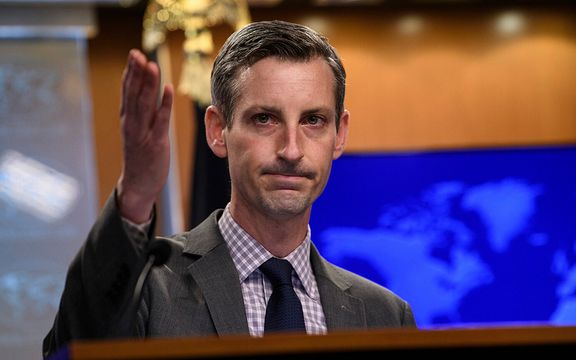
US State Department Spokesperson Ned Price says the United States and Israel have a tactical difference over the revival of Iran’s 2015 nuclear deal – or the JCPOA.
In response to a question about a report that the EU-proposed text of the agreement goes beyond the redlines of the Biden administration, Price said on Thursday that “it is no question that we have tactical differences with our Israeli partners when it comes to this question, the JCPOA. There is also no question that when it comes to the strategic objective, the overarching objective, we see entirely eye to eye.” Axios had reported that the Israeli prime minister sent a message to the White House saying the Biden administration should walk away from the deal.
“We are aligned. We are aligned in the firm belief that Iran must never be allowed to acquire or possess a nuclear weapon,” he said, noting that “We happen to believe that diplomacy... centered around a potential mutual return to compliance with the JCPOA is the most effective means by which... to once again see to it that Iran is subject to permanent and verifiable limits on its nuclear program as well as to the most stringent verification and monitoring regime ever negotiated.”
Price reiterated that if Tehran and Washington can return to compliance with the JCPOA, Iran will not be in a position to acquire a nuclear weapon, adding that US and Israel “see eye to eye on this overarching priority of ensuring that Iran can never acquire a nuclear weapon.”
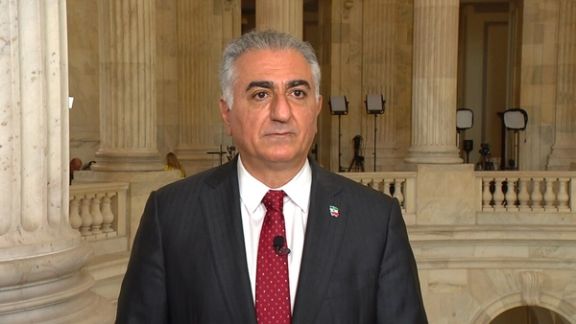
Iran's exiled Prince Reza Pahlavi says the way Western powers interact with the Islamic Republic has emboldened it to continue its repressive measures with greater immunity.
In a Wall Street Journal opinion piece, Pahlavi noted that the regime of Iran is the main responsible party for the attack on writer Salman Rushdie in New York last week, adding that Iran’s Ayatollah Ruhollah Khomeini invoked God to “call on all valiant Muslims wherever they may be in the world to kill [Mr. Rushdie] without delay.”
“While the Islamist regime in my country and the assailant it appears to have inspired bear responsibility for this attack, they were enabled by Western policy makers,” he wrote.
In the late 1980s and early 1990s, the United Kingdom and Germany cut relations with Iran, sending a strong message, Pahlavi said.
“This forced the Islamic Republic to keep a low profile. British and German citizens were largely safe from its machinations. The strong response from the West didn’t change Tehran’s destructive desires, but it did contain them,” he said, highlighting that now it appears “Western powers on both sides of the Atlantic have forgotten the lessons that kept their citizens secure as well as the dissidents to whom they offered a haven.”
He said although the Islamic Republic has not changed its revolutionary principle, it is now “accepted at glitzy panels at international forums and attend headline-grabbing negotiations at Europe’s chicest hotels.” That acceptance has afforded the regime unprecedented and undeserved moral equivalency with the West and has fostered confidence among Tehran’s radical followers who see the regime as a source of revolutionary inspiration to radical action, Pahlavi said.
The negotiations with Washington over a new nuclear deal in Vienna have shown “Khamenei and his criminal cabal” that they can effectively get away with murder, he said.